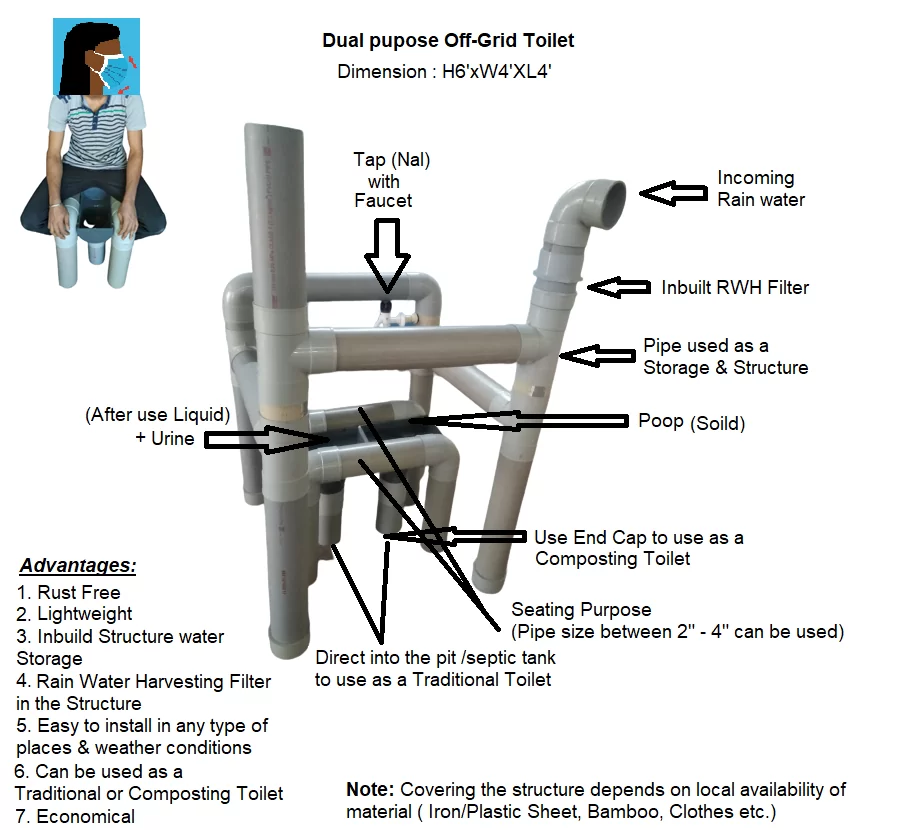Post 1: Do you get worried when there are no customers coming to your shop?

We all love customers. But there are days when you have no or less customers.
Feeling worried about no customers can make us more worried.
Better to get involved in productive things.
When there are no customers coming to a shop, there are several productive things that can be done:
📍Organize and clean: Take the opportunity to tidy up the shop, clean the displays, shelves, and any other areas that need attention.
This ensures that the shop looks inviting and well-maintained when customers do arrive.
📍Restock inventory: Check your inventory levels and restock any items that are running low.
👉This ensures that you are well-prepared for future customers and reduces the chances of running out of popular products.
📍Update displays and signage: Experiment with rearranging displays to create a fresh look. Update signage or promotional materials to highlight new products or offers.
👉A visually appealing and informative display can attract the attention of potential customers.
📍Plan marketing strategies: Utilize the downtime to brainstorm and plan marketing strategies to attract more customers.
👉Consider running promotions, advertising on different platforms, or exploring partnerships with other businesses to increase visibility.
📍Improve product knowledge: Use the time to educate yourself and your staff about the products or services you offer.
👉Better product knowledge helps you provide better customer service and answer any questions that may arise when customers visit.
📍Engage with customers online: If you have an online presence, such as a website or social media accounts, engage with your audience.
👉Respond to comments, share updates, and provide valuable content to keep your brand active and connected with potential customers.
📍Analyze sales data and trends: Review your sales data to identify patterns or trends that can help you make informed decisions.
👉Analyzing customer preferences, popular products, and peak business hours can guide you in making strategic changes to improve future performance.
📍Research and development: Explore new product lines, conduct market research, or develop ideas for expanding your offerings.
👉Use the time to innovate and explore ways to stay competitive in the market.
Remember, even during slow periods, it’s essential to stay proactive and make the most of the downtime to improve your business.
#business #marketing #opportunity #sales #entrepreneur #entrepreneurs
Post 2: What are cons and pros of working on weekends?

By the way I always work on Sundays.
You know why?
In my laundromat the customers are more on weekends. So I need to mould myself accordingly to generate revenue.
Working on weekends can have both pros and cons.
Here are some common advantages and disadvantages associated with working on weekends:
👉Pros:
📍Flexibility:
Some people prefer working on weekends as it allows them to have weekdays off, providing greater flexibility for personal commitments or activities.
📍Overtime pay or bonuses:
In certain industries or job roles, working on weekends may entitle employees to receive higher pay rates or additional bonuses.
📍Reduced distractions:
Depending on the nature of the work and the workplace, weekends can be quieter with fewer interruptions, allowing for increased focus and productivity.
📍Career advancement opportunities:
In certain professions, working on weekends can be advantageous for career progression, as it demonstrates dedication and a willingness to go the extra mile.
👉Cons:
📍Reduced work-life balance:
Working on weekends may disrupt the balance between personal life and work, making it challenging to spend quality time with family and friends or pursue personal interests.
📍Limited social engagements:
Weekends are typically when most people are off from work, so working during this time might restrict participation in social events and activities.
📍Fatigue and burnout:
Consistently working on weekends without sufficient rest can lead to increased stress, fatigue, and burnout, negatively impacting overall well-being and job satisfaction.
📍Limited availability of services:
Many businesses and services operate primarily during weekdays, so working on weekends may result in limited access to certain facilities or professional services.
It’s important to consider individual circumstances, preferences, and work-life priorities when evaluating the pros and cons of working on weekends.
Different people may have varying opinions and experiences based on their specific situations and personal goals.
#weekend #working #weekendvibes #entrepreneurs #entrepreneur
Post 3: Why it is not necessary for company owners to know everything what their employees know?
There are many reasons why it is not necessary for company owners to know everything that their employees know. Here are a few key points:
🧩 Specialization: Employees are often hired for their specialized skills and knowledge in specific areas. Each employee brings their unique expertise, whether it’s in finance, marketing, programming, or any other field.
It is not realistic or efficient for the company owner to possess all these specialized skills.
🧩 Delegation: As a company grows, it becomes increasingly challenging for one person to oversee every aspect of the business. Company owners delegate tasks and responsibilities to employees who are better equipped to handle specific areas.
By trusting their employees and delegating authority, owners can focus on strategic decision-making and other high-level responsibilities.
🧩 Time and focus: Company owners have numerous responsibilities that require their attention, such as managing finances, developing business strategies, and building relationships with stakeholders. Trying to know everything that every employee knows would be impractical and would consume an excessive amount of time and energy.
Instead, owners rely on their employees’ knowledge and expertise to execute tasks effectively.
🧩 Collaboration and diversity: A company benefits from having a diverse workforce with varied perspectives and experiences. Employees bring different ideas, skills, and insights to the table, which can foster innovation and problem-solving.
Company owners should encourage collaboration among employees and value their diverse knowledge, rather than trying to possess all that knowledge themselves.
🧩 Trust and empowerment: Trust is a crucial element in the employer-employee relationship. When company owners trust their employees and empower them to make decisions within their areas of expertise, it promotes a sense of ownership and responsibility.
This not only increases employee satisfaction but also allows the company to tap into the full potential of its workforce.
Overall, it is more effective for company owners to focus on their own areas of expertise, delegate tasks to qualified employees, foster collaboration, and trust their team members. This approach allows for a more efficient and productive work environment, enabling the company to thrive.
#business #innovation #work #marketing #collaboration #team #energy #founder #entrepreneurship
Post 4: 𝐇𝐨𝐰 𝐭𝐨 𝐇𝐚𝐧𝐝𝐥𝐞 𝐅𝐞𝐚𝐫?

𝑺𝒐, 𝒉𝒐𝒘 𝒅𝒐 𝒚𝒐𝒖 𝒅𝒆𝒂𝒍 𝒘𝒊𝒕𝒉 𝒇𝒆𝒂𝒓?
1. Recognize it.
2. Love and accept yourself.
You don’t need to fight against it, completely change yourself, or find some way to protect yourself from it. It’s going to happen. Recognize that you’re scared.Acknowledge that it’s entirely normal.
Accept that it’s inevitable,predictable.Then give yourself permission to be imperfect.Love and accept yourself and move forward anyway.
#entrepreneurs #fears
Post 5: Are you killing the Golden Goose?

You know the story of 𝐆𝐨𝐥𝐝𝐞𝐧 𝐆𝐨𝐨𝐬𝐞, right?
A man had a goose that unexpectedly started laying a golden egg every day.
It soon made him very rich, but he got 𝐠𝐫𝐞𝐞𝐝𝐲 and 𝐢𝐦𝐩𝐚𝐭𝐢𝐞𝐧𝐭 and wanted to become even 𝐫𝐢𝐜𝐡𝐞𝐫.
So, he cut open the goose to get all the golden eggs at once.But all he discovered inside was goose 𝐠𝐮𝐭𝐬.
There was no gold, and man realized that,in his greed he’d killed the 𝐬𝐨𝐮𝐫𝐜𝐞 𝐨𝐟 𝐡𝐢𝐬 𝐰𝐞𝐚𝐥𝐭𝐡.
There are many #Entrepreneurs can learn from this story, and the first is that you are the Golden Goose.
You can profit for a long time through your 𝐬𝐤𝐢𝐥𝐥𝐬 and 𝐭𝐚𝐥𝐞𝐧𝐭𝐬 ,but not if you kill the 𝐬𝐨𝐮𝐫𝐜𝐞 𝐨𝐟 𝐲𝐨𝐮 𝐜𝐫𝐞𝐚𝐭𝐢𝐯𝐢𝐭𝐲.
#entrepreneur #entrepreneurs #skills #talents #preetiprabha
Post 6: Death Hotel-Where Hindus go to Die

They arrive on #crutches and sometimes on a# stretcher

About 20 men and women each month come from around the world to finish their days at Varanasi’s ‘𝑫𝒆𝒂𝒕𝒉 𝑯𝒐𝒕𝒆𝒍’.
Hindus believe that dying in Varanasi releases them from the eternal cycle of life and death reincarnation. #Cremation in the Ganges is an added spiritual bonus.
The residents pay about a dollar a day for their room.
“All kinds of people from different #backgrounds come here,”. “They come from the east, the south, remote northeast India and abroad.
“Most come here with their family who pray and wait for the end.”
More than 15,000 people have died at 𝑴𝒖𝒌𝒕𝒊 𝑩𝒉𝒂𝒘𝒂𝒏 and been taken to the Ganges for cremation since it opened in about 1908.
𝐒𝐓𝐑𝐀𝐍𝐆𝐄 𝐑𝐈𝐆𝐇𝐓 𝐁𝐔𝐓 𝐀𝐌𝐀𝐙𝐈𝐍𝐆 𝐅𝐀𝐂𝐓!!!!!
#Deathhotel #Varanasi
Post7: Why does Apple always come up with three versions of iPhone?

Let’s understand this by an example.
Let’s say you are an ice-cream lover. You love eating ice-cream.
One day, you go out to eat ice-cream. Shopkeeper provides you below options:
One Scoop Ice Cream: 13 bucks
Two Scoop Ice Cream: 19 bucks
Three Scoop Ice Cream: 19.5 bucks
The negligible difference between the prices of 2nd and 3rd options gets your attention.
This is called 𝐃𝐞𝐜𝐨𝐲 𝐄𝐟𝐟𝐞𝐜𝐭.
A 2nd option is just a Decoy option. Companies provide decoy option so that customer can compare Decoy option with an expensive option (and select the expensive one).
In the absence of a decoy option, the customer will compare: 13 bucks vs 19.5 bucks – and may probably go with a cheaper option.
But with decoy option, the customer now compares 19 bucks vs 19.5 bucks – and most likely selects the expensive option.
Can you see a similar pattern in the pricing of iphone11 by Apple?
iPhone: $ 699
iPhone Pro: $ 999
iPhone Pro max: $ 1099
Yes, Apple does use Decoy effect to drive consumer to buy the expensive version of their product.
What a great technique of marketing…
#entrepreneurs #Apple #iphone #marketing #preetiprabha
Post 8: Why iPhones Cot Lot More in India?

𝑵𝒐 𝑳𝒐𝒄𝒂𝒍 𝑴𝒂𝒏𝒖𝒇𝒂𝒄𝒕𝒖𝒓𝒊𝒏𝒈 & 𝑹𝒆𝒕𝒂𝒊𝒍


𝑻𝒂𝒙𝒆𝒔 & 𝑪𝒖𝒔𝒕𝒐𝒎 𝑫𝒖𝒕𝒚



𝑩𝒓𝒂𝒏𝒅 𝑽𝒂𝒍𝒖𝒆 & 𝑪𝒖𝒓𝒓𝒆𝒏𝒄𝒚


𝑾𝒊𝒍𝒍 𝒊𝑷𝒉𝒐𝒏𝒆𝒔 𝑬𝒗𝒆𝒓 𝑮𝒆𝒕 𝑪𝒉𝒆𝒂𝒑 𝒊𝒏 𝑰𝒏𝒅𝒊𝒂?
One of the ways that Apple phones can get cheaper in India is if manufacturing starts locally. Apple has plans to shift major parts of its Chinese manufacturing units to India.
#Apple #Iphone #Mobile
Post 9: Dual Purpose Off Grid Toilet
What is Off Grid Toilet?
Usually any Toilet system will be connected to traditional Sewer/Water hookup system. But when these are not available then we call that toilet as Off Grid Toilet.
Why this Off Grid toilet is named as Dual purpose Off Grid Toilet?
Depends on water availability in any particular area, this toilet can be used as Traditional and Composting toilet.
How Off Grid Composting Toilet works?
Hate everything about Poop and don’t want to have to See it, Smell it or handle it?
Then you have great place to use the Composting Toilet.
It is so simple to use, you will completely forget the Traditional toilet.
After doing your business on any kind paper 
This toilet has 2 separate compartments- One for Your Poop (Solid Waste) and another one for Urine (Liquid Waste).
You see it is so simple that the solid waste does not get mixed with the liquid waste and can be used separately.
Once the pipe acting as storage fills up then just completely take out the pipe and store it in a drum for composting purpose and cover it completely. Later this compost can be used in gardens as manure and urine can be pored on the soil around the base of plants and trees because it will be eventually be filtered back up through the tree and released into the tree.
Why are we separating the solid waste from the liquid waste?
The fecal matter goes into the pipe and dries up fast because there is no urine in the pipe. And after each usage we should add lime or carbon rich products so that it evaporated the moisture and smell also doesn’t come.
Dry poop is Always a Good Poop.
Dry poop is your composting matter which yields you good crop.
What is the capacity of this latrine?
The pipe holding capacity will be depending on how many people are using the system.
Do you have to clean the latrine system after emptying?
Depends on you and you don’t have to wash it as we are using the paper to collect your solid waste each time you poop. The paper dropping inside the pipe storage to transfer into the composting area . And one more thing since it is compost and compost keeps composting. Trust me.
What is the need when you have your Traditional toilets?
They are more environmentally friendly.
Rust Free structure.
Very lightweight.
Inbuilt storage for water so no need to maintain extra tank.
Inbuilt Rain Water Harvesting Filter.
Easy to install any places and in any weather conditions.
Same toilet can be used as Traditional or Composting Toilet.
Very economical.
They require less water usage.
In addition to all above, they are well suited to remote areas.
Is there any disadvantage of using this toilet?
Disadvantages of a compost toilet include more maintenance than standard toilets.
Improperly or poorly maintained systems can lead to odors, insects, and health hazards.
These toilets usually require some type of power source, and the end product must also be removed.
In addition, too much liquid can lead to slower decomposition.
Design and Technical details?


With proper care and maintenance, a composting toilet can be a safe and cost-effective alternative to traditional flushing toilets.
Kindly connect me if you are interested to support me from going from MVP to practical.
Post 10: What an entrepreneur can learn from a Spider's process of making a web?
An entrepreneur can learn several valuable lessons from observing a spider’s process of making a web.
🕷 Strategic Planning:
Before a spider starts spinning its web, it carefully selects a suitable location and checks the surroundings for potential prey.
🕸 Learning:
Similarly, as an entrepreneur, strategic planning is crucial.
Take the time to analyze the market, identify your target audience, and plan your business strategies accordingly.
🕷 Precision and Attention to Detail:
Spiders carefully construct their webs, ensuring each strand is placed correctly.
🕸 Learning:
This attention to detail is vital for entrepreneurs as well.
Paying attention to the small details of your product or service can make a huge difference in its quality and overall customer experience.
🕷 Adaptability and Iteration:
Spiders often make adjustments to their webs based on environmental factors such as wind or changes in prey behavior.
🕸 Learning:
Entrepreneurs can learn from this adaptability by being open to feedback, market trends, and customer needs.
Iterating on your business model and making necessary adjustments can help you stay relevant and competitive.
🕷 Efficiency and Optimization:
Spiders optimize their web-building process to make it as efficient as possible. They use the least amount of silk necessary while maximizing its strength.
🕸 Learning:
Entrepreneurs can apply this principle by seeking ways to optimize their operations, streamline processes, and minimize wastage of resources such as time, money, and energy.
🕷 Risk Assessment and Mitigation:
Spiders strategically position anchor points and structural elements in their webs to ensure stability and minimize the risk of collapse.
🕸 Learning:
Similarly, entrepreneurs should assess and mitigate risks in their business ventures.
Identifying potential risks and developing contingency plans can help safeguard your business against unforeseen challenges.
🕷 Patience and Persistence:
Spiders don’t expect their webs to be instantly successful. It takes time for them to attract prey and achieve their goal.
🕸 Learning:
Entrepreneurs must embody patience and persistence as well. Building a successful business often takes time, effort, and perseverance. Be prepared to weather challenges and setbacks along the way.
🕷Collaboration and Delegation:
Some species of spiders engage in cooperative web-building, where multiple spiders work together.
🕸 Learning:
Entrepreneurs can learn from this collaboration by recognizing the value of teamwork, delegating tasks to skilled individuals, and building a strong team to support their business endeavors.
It is essential to adapt these lessons from Spider and apply them in their businesses.

Post 11: Manager vs Entrepreneur
Sometimes people often get confused with the roles of a manager and an entrepreneur.
Here are some key differences between a manager and an entrepreneur:
☑Role and Purpose:
Manager:
👉 A manager is responsible for overseeing the day-to-day operations of a business.
👉Their primary focus is on executing existing plans, ensuring efficiency, coordinating resources, and achieving goals set by the organization.
Entrepreneur:
👉An entrepreneur is an individual who identifies an opportunity, takes risks, and creates a new business .
👉Their primary role is to innovate, identify market gaps, develop new products or services.
☑Mindset:
Manager:
👉Managers typically have a structured mindset and tend to focus on optimizing processes, maintaining stability, and ensuring the smooth functioning of operations.
Entrepreneur:
Entrepreneurs have a more creative and visionary mindset. They are often willing to take risks, think outside the box, and explore new possibilities.
☑Decision-Making:
Manager:
👉Managers make decisions within the framework and guidelines established by the organization.
👉Entrepreneur:
Entrepreneurs have a higher degree of autonomy in decision-making. They often make decisions based on their intuition, market research, and personal vision.
☑Focus:
👉Manager:
Managers typically focus on short-term goals and operational efficiency.
👉 Their main goal is to achieve predetermined objectives.
Entrepreneur:
👉 Entrepreneurs have a long-term perspective and focus on the overall growth and success of the business.
👉 Entrepreneurs are more concerned with the big picture and the future direction of the organization.
☑Ownership and Accountability:
Manager:
👉Managers are accountable for their specific areas of responsibility and report to higher-level management or business owners.
👉They are responsible for implementing plans, meeting targets, managing teams, and ensuring operational efficiency.
Entrepreneur:
👉 Entrepreneurs have a higher level of ownership and are ultimately accountable for the success or failure of their ventures.
👉They bear the financial and strategic risks associated with starting and running a business. Entrepreneurs often answer to investors, stakeholders, or themselves.
😎 While there can be some overlap between the roles of a manager and an entrepreneur.
😎 Understanding these differences is crucial in defining their respective contributions and responsibilities within an organization.
#entrepreneurs #business #management #manager #mindset #entrepreneurship
Post 12: Do you check on your Competitors?

Checking your competition can have both pros and cons. Here are some important points:
❄Pros of checking your competition:
🧩Market insights:
Monitoring your competition can provide valuable insights into market trends, consumer preferences, and industry best practices.
By noticing what your competitors are doing well, you can gain inspiration and identify opportunities for improvement in your own business strategies.
🧩Competitive advantage:
Understanding your competition allows you to identify your unique selling points and differentiate yourself from others.
🧩Pricing and positioning:
Studying your competition helps you evaluate their pricing strategies and positioning in the market.
🧩Innovation and differentiation:
By keeping an eye on your competition, you can stay up-to-date with industry innovations and emerging trends.
❄Cons of checking your competition:
🧩Distraction from your own strategy:
Focusing too much on your competition can lead to neglecting your own business strategy and goals.
🧩Copycat mentality:
Constantly monitoring your competition may tempt you to imitate their strategies or offerings too closely.
🧩Missed opportunities:
Excessive focus on your competition might cause you to miss potential opportunities in the market.
🧩Negative mindset:
Constantly comparing yourself to your competition can lead to a negative mindset and a sense of inadequacy.
Use the information you gather to inform your strategies and differentiate yourself, but also remain focused on your own goals and strengths.
#competition #innovation #opportunities #inspiration #strategy #mindset #usp #linkedin #entrepreneur #entrepreneurship
Post 13: Why it is important for women to be financially stable?

👩🦱I feel even if a single woman is earning and not earning should have separate bank account.
👩🦱She should not beg in front of anyone for her needs.
👩🦱She should not owe an answer for her expenses.
👩🦱She should be equally responsible for paying bills.
👩🦱She should be able to do investment and do trading.
👧👧👧👧👧👧👧👧👧👧👧👧👧👧👧👧👧👧
It is important for women to be financially stable for several reasons:
👧Independence and Empowerment:
Financial stability allows women to be independent and have control over their lives. It empowers them to make their own decisions and not rely on others for financial support.
👧Economic Security:
Financial stability provides a sense of security and a safety net during uncertain times. It helps create a foundation for a more stable and secure future.
👧Career Advancement:
Financial stability enables women to invest in their education, skills, and professional development. It gives them the freedom to pursue career opportunities.
👧Breaking Gender Stereotypes:
Achieving financial stability challenges traditional gender roles and stereotypes that restrict women’s roles to caregivers or homemakers. When women are financially independent, they challenge societal norms and promote gender equality.
👧Improved Quality of Life:
Financial stability allows women to enjoy a higher quality of life. It provides the means to meet basic needs, access healthcare, pursue hobbies, travel, and engage in activities that bring joy and fulfillment.
👧Role Modeling and Empowering Others:
When women achieve financial stability, they serve as role models for others, inspiring and empowering other women to strive for their own financial independence.
Overall, financial stability for women is crucial for their personal, professional, and social well-being.
It promotes independence, equality, and empowerment, while creating opportunities for growth, security, and a higher quality of life.
#growth #opportunities #women #womenempowement #womeninbusiness
Post 14: Do your Customers Forgive you for your Mistakes?

Building a good relationship with customers can indeed create a sense of trust and understanding that can make them more acceptable to your faults or mistakes.
When customers have a positive relationship with a company, they tend to be more forgiving and understanding when things go wrong.
Here are a few reasons why a good customer relationship can lead to greater acceptance of mistakes:

When customers trust a business or individual, they are more likely to believe that any mistakes or faults were unintentional.

Effective communication plays a crucial role in maintaining a good relationship with customers. If you have established open lines of communication and promptly address any issues or faults, customers are more likely to feel heard and valued.

A history of providing excellent customer service and demonstrating a commitment to customer satisfaction can help mitigate the impact of any faults.

Building a strong emotional connection with customers can foster loyalty and understanding. When customers feel a sense of loyalty towards a brand or individual, they are more likely to forgive occasional mistakes or faults.

When a fault occurs, how you handle the situation can make a significant difference. If you proactively acknowledge the fault, take responsibility, and provide a satisfactory resolution, customers are more likely to appreciate your efforts and remain loyal.



#business #quality #building #customerservice #entrepreneur #entrepreneurs #entrepreneurship
Post 15: Should you Quit your current job while pursuing Entrepreneurship

Deciding whether to quit your current job while pursuing entrepreneurship is a complex and personal decision that depends on various factors.
While it was not easy for me too when I started my journey.
While I can’t make the decision for you, I can provide you with some considerations to help you to take your decision easily:

Entrepreneurship often involves a period of financial instability, especially in the initial stages. It’s important to check your financial situation and determine if you have sufficient savings or income to sustain yourself during this period.

Starting and running a business can be demanding, requiring a significant time commitment. Check whether you can balance the responsibilities of your current job and the demands of entrepreneurship simultaneously.

Entrepreneurship inherently involves risks, and the decision to quit your job adds another layer of uncertainty.
Evaluate your risk tolerance and your ability to handle potential setbacks or failures. Some people prefer to start a business while still employed to minimize financial risks, while others may feel more motivated and focused to start their entrepreneurial journey.

Before quitting, check the readiness of your business venture. Check some factors such as market research, product or service development, customer acquisition strategies, and overall business viability. If you have validated your business idea, secured funding, or already have customers, it may indicate a higher chance of success and make quitting your job easily.

Consider the support network available to you, including mentors, advisors, fellow entrepreneurs, or a supportive community.
Ultimately, the decision to quit your current job while pursuing entrepreneurship depends on your individual choice.
It may be beneficial to consider the factors mentioned above, and consult with trusted individuals who understand your situation before making a final decision.
Post 16: Why there are some managers tries to find the weaknesses in you and later targets you?

There could be various reasons why some managers may focus on finding weaknesses in their employees and later target them.
Here are a few possible explanations:
🥂Insecurity:
Some managers may feel threatened by skilled employees. They might see identifying weaknesses as a way to assert their authority and maintain a sense of control over their team.
🥂Misguided leadership approach:
Certain managers may subscribe to outdated or ineffective leadership styles that emphasize criticism and fault-finding rather than nurturing and developing their employees.
They may believe that focusing on weaknesses will lead to improvement.
🥂Performance evaluation pressure:
Managers are often responsible for evaluating their employees’ performance. In an attempt to justify their own position or meet certain performance metrics, they may adopt a more critical mindset and focus on identifying weaknesses rather than recognizing and leveraging strengths.
🥂Lack of proper training:
Some managers may not have received adequate training in people management and leadership skills. As a result, they may resort to targeting employees’ weaknesses as a misguided attempt to improve overall team performance.
🥂Personal biases:
Managers, like anyone else, can have personal biases that influence their perceptions and actions. These biases may lead them to unfairly target certain individuals based on factors such as personality, background, or personal differences.
It is important to note that not all managers exhibit these behaviors.
Many managers adopt supportive and empowering approaches, focusing on employee strengths and providing constructive feedback for growth.
😀If you find yourself in a situation where a manager is consistently targeting you, it may be helpful to seek guidance from HR or a trusted colleague to address the issue and explore potential resolutions.
Post 17: What are pros and cons of taking money from investors?

Taking money from investors can have both pros and cons.
🌻Pros of taking money from investors:
🌼Capital infusion:
Investors provide much-needed capital to fund your business operations, expansion plans, research and development, marketing campaigns, and other critical areas. These funds can accelerate growth and help you achieve your goals faster.
🌼Expertise and guidance:
Investors often bring valuable expertise, industry knowledge, and networks to the table. Their experience can help you navigate challenges and make better decisions.
🌼Validation and credibility:
When reputable investors invest in your business, it can enhance your credibility and reputation in the market. This can attract more customers, partners, and employees.
🌼Shared risk:
Taking money from investors means sharing the risk. If your business faces financial challenges or fails, the investors bear a portion of the losses, reducing your personal liability.
🌼Networking opportunities:
Investors often have extensive networks that can open doors to potential customers, partners, suppliers, and other resources. These networking opportunities can help you gain access to valuable business connections and opportunities for growth.
🌻Cons of taking money from investors:
🌼Loss of control:
Investors usually expect a say in major decisions and may require a seat on your board of directors or a significant level of control. This can result in a loss of autonomy and decision-making power for the founders. Conflicts may arise if there are disagreements on the direction of the business.
🌼Dilution of ownership:
By taking money from investors, you may need to give up a portion of your ownership in the company.
🌼Pressure for short-term results:
Investors often have financial expectations and may put pressure on you to deliver quick returns on their investment. This can lead to short-term thinking and sacrificing long-term strategies for immediate gains, which may not always align with your vision.
🌼Loss of privacy and transparency:
Taking money from investors means opening up your financials, operations, and strategy to scrutiny.
🌼Exit expectations:
Investors typically expect an exit strategy that allows them to realize a return on their investment. This could involve selling the company, going public through an initial public offering (IPO), or other means. Balancing investor expectations for an exit with your long-term goals can be challenging.
It’s important to carefully consider these factors and assess whether taking money from investors aligns with your business objectives, values, and long-term vision.
#investors #investing #startups #entrepreneur #entrepreneurship
Post 18: Why there are some people interested in posting their pictures with the posts on Social Media?

Posting pictures with posts has become a popular practice on social media platforms for several reasons:
🤳 Visual Appeal:
Images are visually captivating and can instantly grab attention. Including a picture with a post makes it more visually appealing and can increase engagement from other users.
🤳 Personalization and Authenticity:
Posting a picture with a post allows individuals to personalize their content and make it more relatable. People enjoy seeing the faces behind the posts, as it adds a sense of authenticity and human connection.
🤳 Storytelling:
Pictures can tell a story or convey emotions more effectively than words alone. By posting a picture, individuals can enhance their message or story and evoke a stronger response from their audience.
🤳 Self-expression:
Sharing pictures allows people to express themselves creatively and showcase their unique perspectives, experiences, or talents. It provides an opportunity for individuals to highlight their interests, hobbies, achievements, or moments they find meaningful.
🤳 Social Validation:
Posting pictures with posts can also be driven by a desire for social validation. People may seek positive feedback, likes, comments, and social recognition, which can boost their self-esteem and sense of belonging.
🤳 Contextualization:
In some cases, images can provide additional context or support for the post’s content. For example, sharing a picture of a beautiful sunset while describing a peaceful moment at the beach can enhance the overall experience for the audience.
🤳 Marketing and Branding:
Posting pictures is essential for individuals or businesses looking to market themselves or their products/services. Visual content can create brand recognition, attract customers, and showcase products in an engaging way.
Overall, posting pictures with posts offers a visually stimulating and engaging experience, allowing individuals to express themselves, connect with others, and share their stories or interests more effectively.😀😀
I have not tried it yet, due to my shy nature.
Have you tried and experienced the difference?
Post 19: Why sometimes WFH is painful?

Working from home (WFH) can be challenging and sometimes painful due to several reasons:
💻 Lack of separation between work and personal life:
When working from home, it can be difficult to establish boundaries between your work and personal life.
💻 Distractions:
Home environments can be filled with distractions, such as family members, pets, household chores, or the temptation to engage in leisure activities. These distractions can interrupt your workflow and make it harder to concentrate and be productive.
💻 Social isolation:
Working remotely can lead to feelings of isolation and loneliness. The lack of face-to-face interactions with colleagues can make it challenging to build relationships, collaborate effectively, and maintain a sense of connection with the broader team.
💻 Communication challenges:
Communication is crucial in a remote work setup, but it can be more challenging when you don’t have the benefit of in-person interactions. Misunderstandings can occur more easily, and there may be delays in getting responses or clarifications from colleagues, which can slow down projects and increase frustration.
💻 Technical issues:
Depending on the quality of your internet connection or the reliability of your technology, you may encounter technical issues that disrupt your work. These problems can range from slow internet speeds to software glitches, leading to frustration and decreased productivity.
💻 Lack of structure and motivation:
Some individuals thrive in a structured office environment, where routines and schedules are predefined. Working from home requires self-discipline and self-motivation to stay focused and meet deadlines. Without the external structure of an office, it’s easy to become disorganized or lose motivation.
💻 Ergonomic challenges:
Home setups may not always provide an ideal ergonomic work environment. Poorly designed workstations, uncomfortable chairs, or inadequate lighting can lead to physical discomfort, such as back pain, eye strain, or fatigue.
To mitigate these challenges, it’s essential to establish a dedicated workspace, set clear boundaries, maintain regular communication with colleagues, and prioritize self-care. Experimenting with different strategies and finding a routine that works for you can help make working from home more comfortable and productive.
Post 20: Why repeated customers are important for your business?

Repeated customers are vital for a business due to several reasons:
👉 Revenue Generation: Repeat customers contribute significantly to a company’s revenue. They tend to spend more than first-time customers because they have already established trust in the brand and its products or services.
👉 Cost Efficiency: Acquiring new customers typically requires more resources, time, and effort compared to retaining existing customers. Repeat customers already have knowledge about the company, its offerings, and its processes. They require less marketing and sales efforts, resulting in lower customer acquisition costs.
👉 Positive Word-of-Mouth and Referrals: Satisfied repeat customers are more likely to share their positive experiences with others, leading to valuable word-of-mouth marketing. They become brand advocates, recommending the business to their friends, family, and colleagues. These referrals can bring in new customers who are more likely to trust the brand based on the recommendations of someone they know.
👉Customer Lifetime Value: Repeat customers tend to have a higher customer lifetime value (CLV) compared to one-time buyers. CLV represents the total amount of revenue a customer generates throughout their relationship with a company. By nurturing relationships with repeat customers, businesses can maximize CLV, as these customers are more likely to make multiple purchases over an extended period.
👉Feedback and Improvement: Repeat customers provide valuable feedback to businesses. Their continuous engagement allows companies to gather insights into their preferences, pain points, and suggestions for improvement. This feedback can be used to refine products, enhance services, and tailor marketing strategies to better meet customer needs, resulting in overall business growth.
👉Competitive Advantage: Building a loyal customer base can provide a competitive advantage in the market. Repeat customers create a stable customer base that can be more resilient during economic downturns or when faced with intense competition. Additionally, businesses with a strong base of loyal customers may differentiate themselves from competitors based on their reputation for excellent customer service and trustworthiness.
In summary, repeated customers are crucial for business success as they generate consistent revenue, contribute to cost efficiency, drive word-of-mouth marketing, increase CLV, provide valuable feedback, and help establish a competitive advantage in the market.
#business #success #growth #marketing #customer #customers #customerexperience #sales #brand
Post 21: Why Consistency is the Key for Success?

Consistency is often said to be the key to success because it allows us to build momentum and make progress towards our goals. Here are a few reasons why consistency is so important:
𝐁𝐮𝐢𝐥𝐝𝐬 𝐇𝐚𝐛𝐢𝐭𝐬: When we consistently do something over a period of time, it becomes a habit. Good habits, such as regular exercise or studying, can lead to better health or improved performance, while bad habits can have negative consequences.
𝐂𝐫𝐞𝐚𝐭𝐞𝐬 𝐌𝐨𝐦𝐞𝐧𝐭𝐮𝐦: Consistently working towards a goal creates momentum, which can help us achieve success faster. This is because when we consistently take action toward our goals, we build confidence and motivation, which can fuel our progress.
𝐎𝐯𝐞𝐫𝐜𝐨𝐦𝐞𝐬 𝐏𝐫𝐨𝐜𝐫𝐚𝐬𝐭𝐢𝐧𝐚𝐭𝐢𝐨𝐧: Often, we procrastinate because we don’t feel like doing something. However, when we commit to being consistent, we are more likely to follow through on our commitments, even if we don’t feel like it.
𝐁𝐮𝐢𝐥𝐝𝐬 𝐓𝐫𝐮𝐬𝐭: Consistency also helps build trust, both with ourselves and others. When we consistently deliver on our promises, we build a reputation for being reliable, which can lead to more opportunities for success.
In summary, consistency is important because it helps us build habits, creates momentum, overcomes procrastination, and builds trust. By being consistent, we can develop the discipline and focus needed to achieve success in all areas of our lives.
#success #motivation #help #opportunities #consistencyiskey #consistency
Post 22: Unproductive Employees can cost you More

Do not ignore Unproductive employees as they can cost you more and pain in the ass. 🤯🤯
You know how?
Here are some potential costs associated with unproductive employees:
📍Wasted time: Unproductive employees often spend time on non-work-related activities, such as internet browsing, social media, or excessive breaks.
This time could have been utilized for productive work.
📍Lower quality of work: Unproductive employees may rush through tasks or neglect attention to detail.
That will result in lower quality work.
📍Decreased efficiency: Employees who are unproductive may not utilize their time and resources effectively.
That will lead to inefficiencies in processes and workflows.
📍Reduced morale and team dynamics: Unproductive employees can negatively affect the morale and motivation of their coworkers.
Because they will always talk negative.
📍Training and development costs: If unproductive employees lack the necessary skills or knowledge to perform their job effectively, the organization may need to invest in additional training or professional development programs.
Additional cost can be burden for the organizations.
📍Employee turnover and recruitment: Unproductive employees may contribute to a negative work environment or impact team dynamics, leading to higher turnover and recruitment rates.
📍Opportunity costs: When unproductive employees are not performing at their full potential, the organization misses out on the opportunity to leverage their skills and expertise for innovation, problem-solving, and driving growth.
It’s important to note that the cost of unproductive employees is not solely monetary. It can also effect organizational culture, employee engagement, and overall productivity.
Therefore, addressing and managing productivity issues is crucial for organizations to maintain a healthy and thriving work environment.
Post 23: Why it is not necessary for company owners to know everything what their employees know?

There are many reasons why it is not necessary for company owners to know everything that their employees know. Here are a few key points:
🧩 Specialization: Employees are often hired for their specialized skills and knowledge in specific areas. Each employee brings their unique expertise, whether it’s in finance, marketing, programming, or any other field.
It is not realistic or efficient for the company owner to possess all these specialized skills.
🧩 Delegation: As a company grows, it becomes increasingly challenging for one person to oversee every aspect of the business. Company owners delegate tasks and responsibilities to employees who are better equipped to handle specific areas.
By trusting their employees and delegating authority, owners can focus on strategic decision-making and other high-level responsibilities.
🧩 Time and focus: Company owners have numerous responsibilities that require their attention, such as managing finances, developing business strategies, and building relationships with stakeholders. Trying to know everything that every employee knows would be impractical and would consume an excessive amount of time and energy.
Instead, owners rely on their employees’ knowledge and expertise to execute tasks effectively.
🧩 Collaboration and diversity: A company benefits from having a diverse workforce with varied perspectives and experiences. Employees bring different ideas, skills, and insights to the table, which can foster innovation and problem-solving.
Company owners should encourage collaboration among employees and value their diverse knowledge, rather than trying to possess all that knowledge themselves.
🧩 Trust and empowerment: Trust is a crucial element in the employer-employee relationship. When company owners trust their employees and empower them to make decisions within their areas of expertise, it promotes a sense of ownership and responsibility.
This not only increases employee satisfaction but also allows the company to tap into the full potential of its workforce.
Overall, it is more effective for company owners to focus on their own areas of expertise, delegate tasks to qualified employees, foster collaboration, and trust their team members. This approach allows for a more efficient and productive work environment, enabling the company to thrive.
#business #innovation #work #marketing #collaboration #team #energy #founder #entrepreneurship
Post 24: Should You be Worried if Someone Steals Your Idea?

Finding that someone has stolen your idea can be concerning, but it’s important to approach the situation with a positive mindset.
You can consider a few points:
💡 𝐈𝐝𝐞𝐚 𝐯𝐬. 𝐄𝐱𝐞𝐜𝐮𝐭𝐢𝐨𝐧:
Ideas are valuable, but execution is key. It’s common for multiple people to have similar ideas independently. The true value lies in how well the idea is executed and brought to market.
💡 𝐏𝐫𝐨𝐭𝐞𝐜𝐭𝐢𝐧𝐠 𝐈𝐧𝐭𝐞𝐥𝐥𝐞𝐜𝐭𝐮𝐚𝐥 𝐏𝐫𝐨𝐩𝐞𝐫𝐭𝐲:
Evaluate if your idea can be legally protected through patents, trademarks, copyrights, or trade secrets. If your idea meets the criteria for protection, consult with intellectual property lawyers to explore the available legal options.
💡 𝐃𝐢𝐟𝐟𝐞𝐫𝐞𝐧𝐭𝐢𝐚𝐭𝐢𝐨𝐧 𝐚𝐧𝐝 𝐔𝐧𝐢𝐪𝐮𝐞𝐧𝐞𝐬𝐬:
Emphasize the unique aspects of your idea and differentiate your offering in the market.
💡 𝐌𝐚𝐫𝐤𝐞𝐭 𝐀𝐝𝐯𝐚𝐧𝐭𝐚𝐠𝐞:
Consider if you have a first-mover advantage or if you have already established a strong presence in the market. Building a loyal customer base, and creating brand recognition can be difficult for competitors to replicate quickly.
💡 𝐂𝐨𝐥𝐥𝐚𝐛𝐨𝐫𝐚𝐭𝐢𝐨𝐧 𝐚𝐧𝐝 𝐍𝐞𝐭𝐰𝐨𝐫𝐤𝐢𝐧𝐠:
Collaborating with trusted individuals and organizations can help you gain insights, validate your ideas, and stay relevant in the market.
💡 𝐅𝐨𝐜𝐮𝐬 𝐨𝐧 𝐄𝐱𝐞𝐜𝐮𝐭𝐢𝐨𝐧:
Rather than fixating on the stolen idea, focus your energy on executing your plans effectively. By executing your idea well, you can create a strong business foundation that makes it challenging for others to replicate or compete directly.
While it’s natural to feel concerned about idea theft but redirecting your focus toward execution, differentiation, legal protection, and building market advantages can help you to deal with this situation effectively.
#business #networking #collaboration #mindset #brand #entrepreneur #entrepreneurship #idea
Post 25: How Can You Support Your Friend's Startup if You are not using his Products and Services

If you are not a customer of your friend’s product or services, there are still several ways you can support and help them:😊
☑𝐖𝐨𝐫𝐝-𝐨𝐟-𝐦𝐨𝐮𝐭𝐡 𝐩𝐫𝐨𝐦𝐨𝐭𝐢𝐨𝐧:
Even if you are not using their product or service yourself, you can still promote it to others. Recommend it to friends, family, or colleagues who may have a need or interest in what your friend offers.
☑𝐒𝐨𝐜𝐢𝐚𝐥 𝐦𝐞𝐝𝐢𝐚 𝐬𝐮𝐩𝐩𝐨𝐫𝐭:
Share your friend’s business or product on your social media platforms. Write a post about their offerings, features, or any special promotions. Tag their business page or include relevant hashtags to increase visibility.
☑𝐏𝐫𝐨𝐯𝐢𝐝𝐞 𝐭𝐞𝐬𝐭𝐢𝐦𝐨𝐧𝐢𝐚𝐥𝐬 𝐨𝐫 𝐫𝐞𝐯𝐢𝐞𝐰𝐬:
Even if you haven’t personally used the product or service, you can still offer to provide a testimonial or review based on your knowledge of your friend’s expertise, professionalism, or the positive experiences of others. T
☑𝐎𝐟𝐟𝐞𝐫 𝐟𝐞𝐞𝐝𝐛𝐚𝐜𝐤 𝐚𝐧𝐝 𝐬𝐮𝐠𝐠𝐞𝐬𝐭𝐢𝐨𝐧𝐬:
Engage in conversations with your friend about their business. Provide constructive feedback and suggestions based on your perspective as an outsider. This can help them refine their offerings, improve their customer experience, and address any problems.
☑𝐀𝐜𝐭 𝐚𝐬 𝐚 𝐬𝐨𝐮𝐧𝐝𝐢𝐧𝐠 𝐛𝐨𝐚𝐫𝐝:
Sometimes, business owners need someone to discuss challenges they’re facing. Offer your support by being a listening ear and providing a fresh perspective. Your input, even as a non-customer, can be valuable in finding solutions.
☑𝐀𝐭𝐭𝐞𝐧𝐝 𝐞𝐯𝐞𝐧𝐭𝐬 𝐨𝐫 𝐫𝐞𝐟𝐞𝐫 𝐩𝐨𝐭𝐞𝐧𝐭𝐢𝐚𝐥 𝐜𝐥𝐢𝐞𝐧𝐭𝐬:
If your friend hosts events, workshops, or webinars related to their business, consider attending or referring others who may benefit.
☑𝐒𝐡𝐚𝐫𝐞 𝐭𝐡𝐞𝐢𝐫 𝐜𝐨𝐧𝐭𝐞𝐧𝐭:
If your friend creates valuable content such as blog posts, podcasts, or videos related to their industry, share it with your network.
Remember that every little bit of support counts, and even if you’re not a direct customer, your assistance and advocacy can have a positive impact on your friend’s business.
#socialmedia #business #content #network #linkedin #entrepreneurialmindset #entrepreneurs #linkedln
Post 26: Can an Entrepreneur teach their Kids about entrepreneurship

Yes, an entrepreneur can definitely teach their kids about entrepreneurship.
Teaching children about entrepreneurship can provide them with valuable skills, mindset, and business concepts from an early age.
Here are a few ways in which an entrepreneur can teach their kids about entrepreneurship:
Involving them in business discussions:
Entrepreneurs can involve their children in discussions about their business ventures,ideas, challenges, and strategies. This exposure can help children develop a business-oriented mindset.
Encouraging creativity and problem-solving:
Parents can encourage their children to think creatively and solve problems by engaging them in activities that require innovative thinking. This can be done through brainstorming sessions, problem-solving exercises, or even starting small entrepreneurial projects together.
Teaching financial literacy:
Understanding financial concepts is crucial for entrepreneurship. Entrepreneurs can teach their children about money management, budgeting, saving, and investing.
Providing entrepreneurial resources:
Entrepreneurs can offer their children resources such as books, articles, podcasts, or videos on entrepreneurship and business. These resources can introduce them to successful entrepreneurs, inspiring stories, and practical advice.
Encouraging independence and initiative:
Entrepreneurs often have a strong sense of independence and take initiative. Parents can encourage these qualities in their children by allowing them to take responsibility for small tasks or projects.
Mentoring and networking opportunities:
Entrepreneurs can introduce their children to their professional networks, providing opportunities for mentorship or internships. These connections can expose children to various industries, allow them to learn from experienced entrepreneurs, and potentially open doors for future collaborations or opportunities.
Remember, while teaching entrepreneurship to their children, it’s important for parents to also encourage them to pursue their own interests and passions.
Not all children may be inclined towards entrepreneurship, and that’s perfectly fine.
#entrepreneurship #entrepreneurs #entrepreneur #kids #kidsentrepreneur


Good reads!
Great article